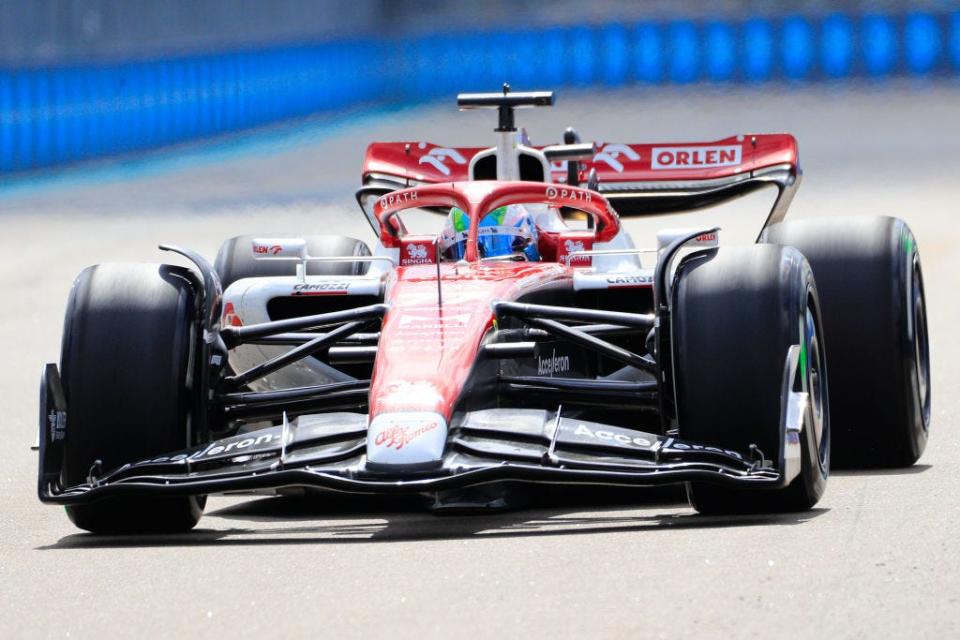What We Learned from the Inaugural F1 Miami Grand Prix

Max Verstappen won Sunday’s Inaugural F1 Miami GP moving from his third place starting spot to the lead.
Polesitter Charles Leclerc had to settle for second place.
Carlos Seinz made it a two for three Ferrari podium.
It was celebrities galore, an entertainment extravaganza but a relatively middling sporting contest at Formula 1’s inaugural Miami Grand Prix.
Max Verstappen closed in on Charles Leclerc in the championship with a third victory from five events, passing the title leader early in the race before resisting pressure in the closing stages following a safety car period.
Behind them Carlos Sainz retained third in front of Sergio Perez while Mercedes salvaged fifth and sixth, George Russell in front of Lewis Hamilton, as the younger Briton once more benefitted strategically.
Autoweek wraps up some of the talking points from the Miami Grand Prix.
A familiar trope from Mercedes

There was encouragement for Mercedes on Friday when George Russell went fastest but it departed the weekend fifth and sixth in the race, firmly third-best, and taking the points it deserved. Russell maximized his opportunities once more, profiting from the timing of a Safety Car to make gains to bag fifth, while Lewis Hamilton was less fortunate but only realistically slipped one position – which was to his team-mate.
“This weekend is where we’ve shown the most amount of promise but we’re a long way off still,” said Russell. Hamilton was slightly more circumspect as he commented that “we’re the same speed as we were in the first race, we haven’t improved in these five races, but I’m hopeful at some stage we will, just got to keep trying.”
Team boss Toto Wolff repeated a familiar mantra that “physics are not mystics and therefore you have to unpick the bones” of Mercedes’ current predicament, but conceded it was becoming frustrating to be relaying the same stance.
“It’s clear there is potential in the car and it’s fast but… we just don’t understand how to unlock the potential,” said Wolff. “It’s probably a car that is super difficult to drive, on the edge, dipping in and out of the performance window – more out than in – and dissecting the data with a scalpel is just a painful process because it takes very long and as a matter of fact the data sometimes don’t show what the drivers tell us, and certainly they have their hands full with the car. The data doesn’t show these big swings [in performance]. We haven’t had this situation before in any years that it didn’t correlate what we see on the screens with what the driver feels and that’s making it more difficult.”
Mercedes could be set for a lot more weekends of having to regarding solid points as a positive outcome, as it is not in the mix to contend with Ferrari and Red Bull.
Bottas’ disappointment shows Alfa’s progress


 Yahoo Autos
Yahoo Autos